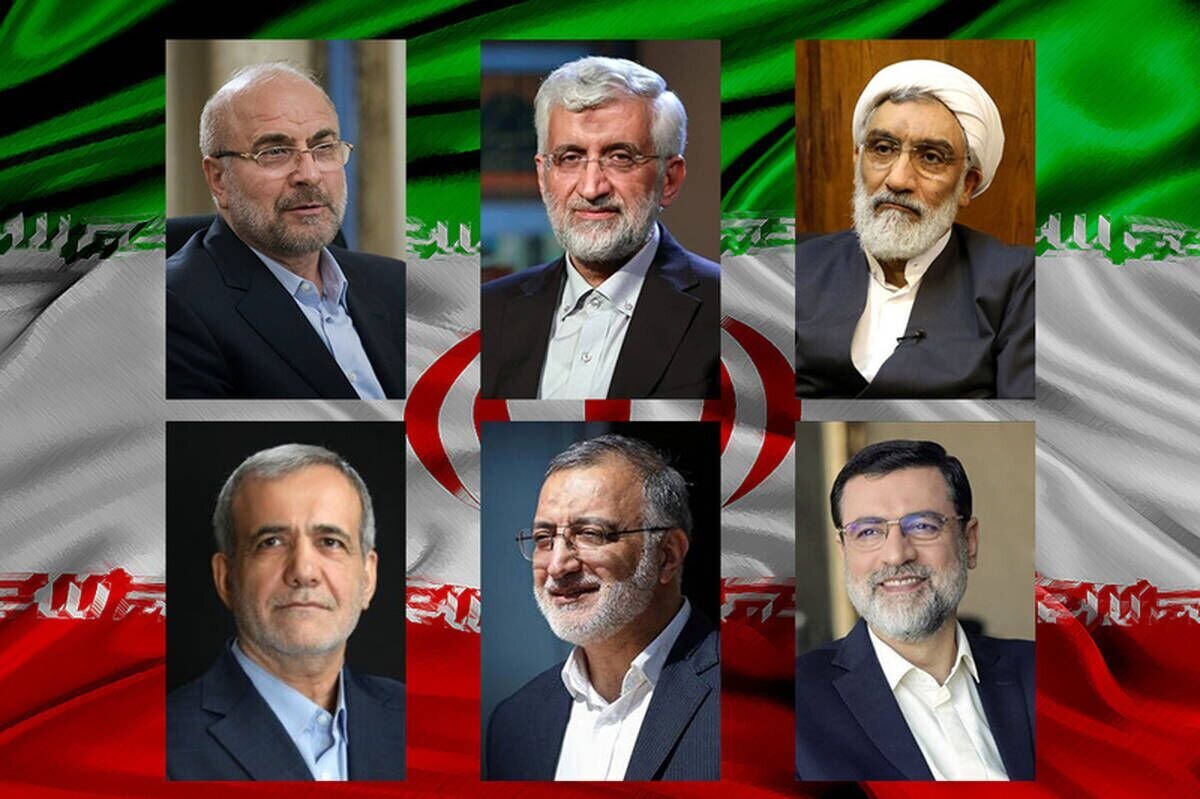By Mona Hojat Ansari

TEHRAN – With Friday's presidential election looming, Iran's six presidential candidates took to national television for their fifth and final debate on Tuesday.
Unlike the previous debate, which was dominated by foreign policy, Tuesday's segment focused on domestic issues, with candidates outlining their plans for improving “government efficiency” across economic, social, cultural, and political spheres.
The debate maintained a relatively calm tone, a stark contrast to the fiery and confrontational nature of Monday's debate, which saw the JCPOA take center stage.
Conservative hopefuls attack Rouhani’s govt. for "tying country’s fate to West’s mind games"
As expected, there was significant scrutiny and criticism of the JCPOA and the negotiation tactics used by former President Hassan Rouhani with the West. Rouhani's team, including former top diplomat Mohammad Javad Zarif, are close to reformist candidate Masoud Pezeshkian and have been actively supporting him in his campaign rallies.
While Pezeshkian argued that the Joint Comprehensive Plan of Action (JCPOA) was an impressive accomplishment of Rouhani's administration, he refused to address the elephant in the room: That the JCPOA was never really implemented by the West, despite Iran fully compromising on some of its nuclear abilities.
Pezeshkian said that if the JCPOA was a bad deal, then late President Ebrahim Raisi wouldn’t have engaged in talks to revive it, to which conservative Amir-Hossein Qazizadeh Hashemi replied: he had no other choice.
"As the vice president of Martyr Raisi, I would like to address this. If Martyr Raisi had chosen to withdraw from the agreement, wouldn't you [reformists] have accused him of aligning with Trump and Netanyahu?" Qazizadeh Hashemi questioned. He further emphasized that "the previous Iranian administration brought the JCPOA to the UN and integrated it into an international resolution, making it impossible for any future governments to alter it. How can you question why Martyr Raisi did not exit the agreement? What other option did he have? Disregard the commitments that Iran had pledged to uphold in the UN Security Council?"
Saeed Jalili was another conservative figure to criticize reformists’ approach to foreign policy: “The problem is that you only interact with two or three countries which not only fail to offer opportunities but also present threats.”
“It is crucial for us to broaden our perspective and consider the entire world. We should not overlook the potential opportunities that can arise from engaging with countries in Latin America, Africa, our neighboring nations, and those on the resistance axis. By expanding our reach, we can tap into new possibilities and avenues for growth,” Jalili added.
The current frontrunner, Mohammad Baqer Qalibaf, said he is willing to revive the JCPOA in a way that benefits Iran, but would also try to neutralize sanctions in the meantime. “Regarding the neutralization of sanctions, we have significant opportunities such as Eurasia, SCO, and BRICS,” he noted.
Pezeshkian responded to the criticisms by announcing that he only abides by “the policies set by the Leader of the Islamic Revolution” adding, “What anyone else says to me doesn't matter.”

No comments:
Post a Comment